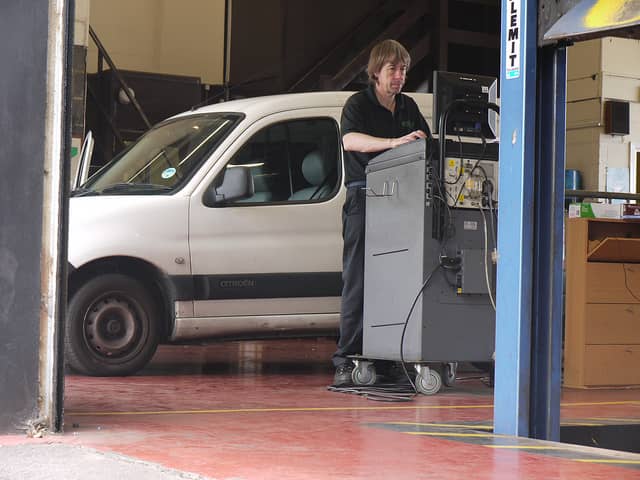
Insurance, in general, is certainly not the easiest subject to get to grips with, which is why there is often some confusion about exactly what certain policies cover and who needs them. For example, some of our customers struggle to understand the difference between motor trade insurance and every day private car insurance and that can leave their businesses dangerously exposed.
With such confusion commonplace, this guide aims to remove any uncertainty and provide real-world examples of where motor trade insurance provides cover in areas where other policies can’t.
What is motor trade insurance?
Motor trade insurance is the umbrella term for a group of insurance policies that provide cover to people who work in the motor trade. That includes:
All of these businesses face different risks, which means motor trade insurance policies need to be tailored to meet the specific needs of each. Motor trade insurance covers businesses to work on and drive their customers’ vehicle and vehicles the company owns. That cover may extend to just the business owner, certain members of the team or everyone who works for the business.
Even if you don’t have to drive your customers’ cars, you will still need some form of motor trade insurance cover to protect you against accidental damage or other risks that arise from your work.
What types of cover are available?
Every motor trader, regardless of their line of work, must have a motor trader insurance policy. However, by law, they only need to choose a policy that allows them to conduct their business at a minimum level of risk. Motor trade insurance policies generally provide three different types of cover:
1. Road risk insurance
Any motor trader who…
- Drives his own or customers’ vehicles on public roads
- Provides general repair services for customer vehicles
- Buys and sells cars for profit
- Operates as a valet, vehicle fitter or mobile tuner
- Operates an MOT station or garage
- Restores and repairs cars
…must have at least third-party-only road risk insurance by law. This is the most basic level of cover available. It covers the trader for the injury, death or damage caused by any vehicle connected to the business’s trade. Third-party fire and theft and comprehensive road risk insurance are also available.
2. Liability motor trade insurance
This type of policy is designed specifically for motor traders who employ people, have customers in their premises or repair, supply and service cars. There are three different types of liability motor trade insurance available. That includes:
- Product, sales and service indemnity cover – That covers the business against claims that may arise from faulty parts or defective workmanship.
- Public liability – This type of policy covers the business against claims arising from members of the public who are injured or become ill at your premises.
- Employer’s liability – Any motor trader who employs one or more members of staff must have employer’s liability insurance by law.
3. Combined motor trade insurance
This is an extensive policy that provides cover against all the risks motor traders may face. That includes cover for road risks, liabilities, premises, tools and contents. This type of policy can cover motor traders who work from commercial premises or at home.
What’s the difference between motor trade insurance and regular car insurance?
A regular car insurance policy covers you to drive your own or someone else’s car for business or private use, depending on the level of cover you have. Motor trade road risk insurance covers those who drive multiple cars they own, such as a vehicle trader, and cars owned by customers. Without a specialist road risk insurance policy, motor traders would have to change the terms of their car insurance every time they drove a different car.
How does motor trade insurance work in practice?
Here are a few examples of the type of motor insurance cover different professions might need in practice:
As a tyre fitter, you’re likely to need cover to drive customers’ vehicles and a policy that protects the work you do and the parts you fit. You may also have expensive equipment you want to protect as well as employees that need covering too. A motor trade insurance policy can provide cover against all these risks.
If you buy and sell cars for profit, you’ll need road risk insurance to cover you to drive multiple vehicles. You may also need demonstration cover, protection for your stock and even goods in transit cover.
As a mechanic, a motor insurance policy will allow you to drive customers’ vehicles for testing and protect your tools and expensive equipment such as lifting and vehicle ramps. You may also choose to add sales and service liability in case anything goes wrong with the work you do or the parts you fit.
What happens if you don’t put motor trade insurance in place?
The confusion about exactly what motor trade insurance is and the cover it provides means there are some businesses that unknowingly operate without the correct cover. The consequences of that could be serious. Not only is it illegal, but if the worst should happen, you could find yourself facing significant court costs, fines and even possible imprisonment, all of which would be disastrous for your business.
If you work in the motor trade and are confused about the risks you face, please get in touch with our motor trade insurance specialists. We can guide you through the process and make sure you have an excellent policy without wasting a penny on cover you don’t need.